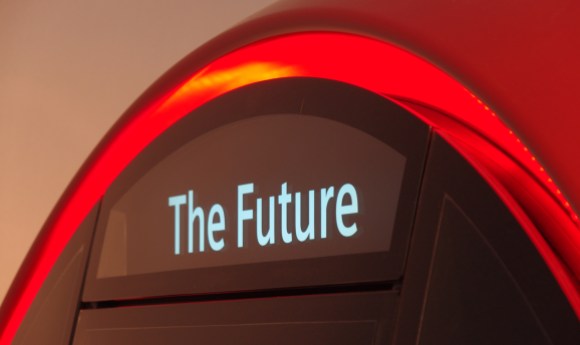
The European Commission is considering changes to enforcement rules for intellectual property rights in an effort to protect creators. We want to ensure that any new rules do not impede collaborative free knowledge projects like Wikipedia.
Last month, the Wikimedia Foundation provided comments to the European Commission on a consultation about changes to the rules. Our community also submitted a questionnaire, which was coordinated by the highly motivated and widely respected Free Knowledge Advocacy Group in Brussels.
Under the current system, copyright owners are already able to stop copyright infringement in the EU by reporting it to website hosts. Projects like Wikipedia flourish when users are empowered to write policies and make decisions where platform operators, e.g. the Wikimedia Foundation, are not legally obligated to intervene. We do not see a need for the Commission to overhaul the regulation and force hosts to get more involved in policing copyrighted content. Instead, the Commission needs to remain focused on its path towards standardizing the complex differences in copyright across Europe. We think that forward-looking copyright policy needs to be easy enough for all creators and users to understand, with strong protections for our shared public domain. Forcing citizen-driven platforms like Wikipedia to actively monitor copyright infringement would be a step backward—hindering the development of free knowledge and innovation.
Earlier this year, we also submitted comments to the European Commission on platform regulations. We explained that the internet relies on many different kinds of sites, and regulations should accommodate this diversity.
As online collaborative projects demonstrate, the distinction between creators and consumers is outdated. On the internet, people can read, write, and remix material with increasing ease and at diminishing cost. This empowers every person with an internet connection to create and share educational and cultural content. Wikipedia’s users, for instance, not only read articles but also contribute their own time and creativity by writing articles, taking photographs, writing software, and much more. It’s important for any discussion of copyright enforcement to consider these forms of creation, as well.
The volunteers contributing to the Wikimedia projects diligently watch for material that violates project policies and guidelines, including prohibitions on copyright infringement, and they remove material as needed. As a result of this community oversight, the Wikimedia Foundation has to get involved in relatively few takedown requests. It’s important for regulators to understand how these systems are working successfully, so they can be preserved.
The European Commission’s intention to improve copyright rules is laudable. However, we must be careful that improvements to copyright reflect new forms of creating, sharing, and remixing. The current rules help projects like Wikipedia that are supported by a small number of staff who would be overwhelmed by stricter rules for enforcement that would mandate monitoring of their sites. Free knowledge has fared well under the current system, but there is always room for improvement. Small organizations that serve the public interest as public spaces for free expression must continue to benefit from strong safe harbors and be protected from fraudulent and invalid takedown requests.
We will continue to provide input as the EU considers other changes to copyright law that will affect free knowledge. The next opportunity is the European Commission’s consultation on the role of publishers in the copyright value chain and on the ‘panorama exception’. If you would like to add your voice to the effort, you can contribute to the response prepared by Wikimedians available here (Deadline is June 15).
Stephen LaPorte, Legal Counsel
Jan Gerlach, Public Policy Manager
Wikimedia Foundation
You can also join the Wikimedia Policy email list to discuss this topic and others with people interested in policy that promotes free knowledge.

Can you help us translate this article?
In order for this article to reach as many people as possible we would like your help. Can you translate this article to get the message out?
Start translation